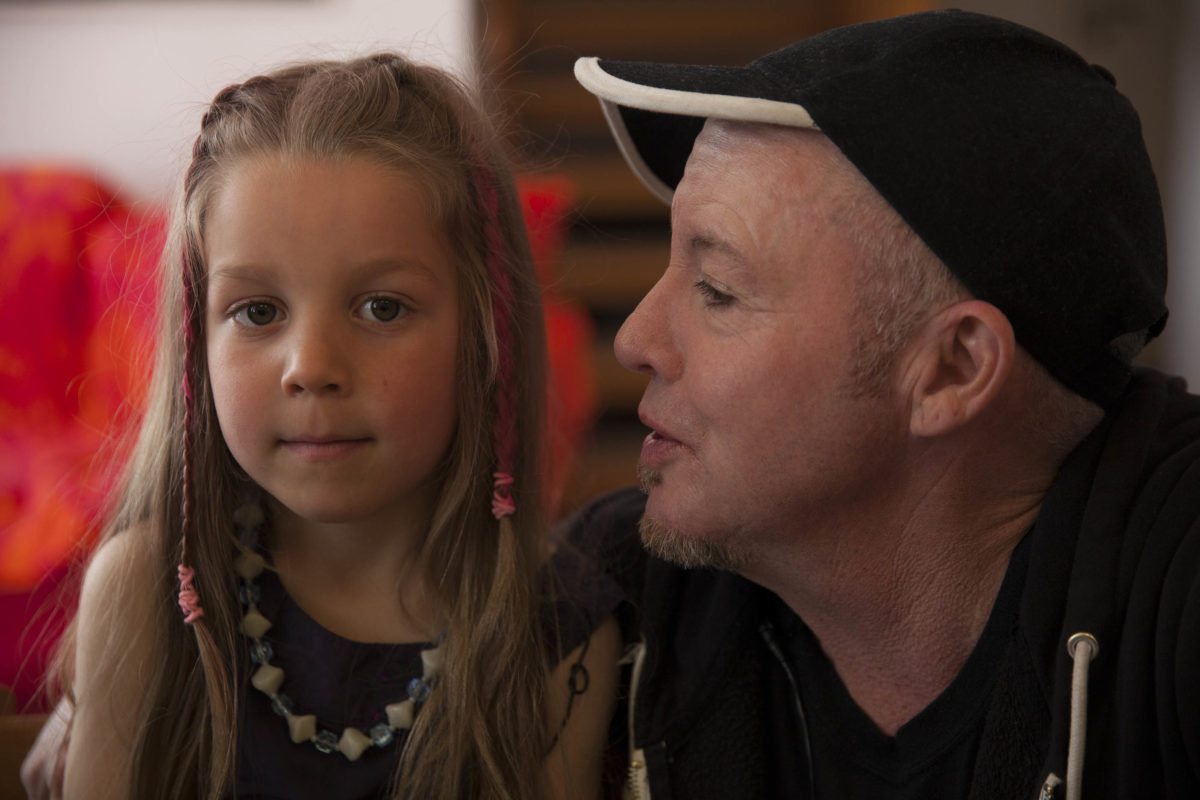Kids are a wonderful part of our lives. Whether you have children of your own, children you get paid to take care of, or even nieces and nephews who think you’re the coolest ever (I fall into that last category there, but I’ve fallen into #2 before, too), kids offer a wealth of creativity and insight that you otherwise might not think about.
Truly, childlike innocence is something that should be preserved. Often, when going through puberty, we find ourselves rebelling from the instincts of a child, despite knowing that they’ve done pretty well for us so far. But one of the things we value most about Grown Up Life (that is, money and our finances)… Kids probably have figured out way better than we do.
What tips can you pick up from your favorite young person?
Kids expect to get a great value – every time.
As adults, we often see listed prices and make a quick decision as to whether we can afford it or not. But kids don’t do that. They expect to be able to take $1 into a toy store, pick out their favorite thing, and walk out with change. We might even tell them “It doesn’t work like that.” But why not?
Instead of squashing their hopes for a good deal, consider adding some negotiations into your own shopping routine. Of course, this is more likely to work with small mom-and-pop stores than it is at the national chains, but if you talk to the right people, you might be able to get coupons, BOGOs, and other great deals.
Stores don’t always advertise these things, because they cut into their profits. But I used to work at an overpriced retailer that literally had a “never say no” policy – if the customer asked for a coupon, we were instructed to say “We usually send coupons out in our mailers, but I will apply it for you this time.” Then we gave them 20% off their order. This retailer was a giant national chain, and they had negotiations built into their business model!
Of course, sometimes you’ll be asked to sign up for their mailer when you receive the “bonus coupon”. Take it! Everyone likes getting stuff in their mailbox, and when the things you get can save you money, it’s even better.
Kids get excited about saving.
Even if your kid-of-choice loves to spend their money, they usually enjoy the act of putting something into savings. There is such joy associated with dropping their change into a piggy bank and then counting it all up when the bank is full.
Try to go back to the days when you enjoyed saving, too. It’s often difficult for us to get excited about saving, but that’s because we’re looking at it the wrong way. Instead of thinking “Oh boy – I’m collecting something!” like a kid would, we think, “Oh no – I’m not allowed to spend this!”
Try to find a way to make saving fun again. Try competing with your savings – instead of making it all about what you’re missing out on. Consider setting up a “found money” collection. This can be something as simple as the change you find on the ground, to finding ways you can cut costs in day to day life. (Do you really need the biggest specialty drink, or would a smaller one with an extra shot of caffeine work just as well? It’s not hard to find ways to save, it’s just hard to force ourselves into the savings, but over time it can turn into habit.)
Whoever wins the “found money challenge” can either choose to spend half of their savings (and keep the rest building up) or they can choose what is done with the money – a special vacation, perhaps, or a dinner date to that expensive restaurant you thought you couldn’t afford. Try it out, and see if turning saving into a game can help you get your money on track!
Kids ask questions. All. The. Time.
I have a nephew who went through this phase of asking questions about everything. “Why is the grass green?” “What type of grass is this?” “How old is it?” “Does it smell the same as other grass?” “What’s the difference between grass and a weed?” … And all this was on the same walk.
At some point when we grow up, we start to feel guilty and embarrassed about asking questions. This is why Google gets the majority of people’s questions – but that’s not bad, either. As long as you’re asking questions to a reliable source, or a source you consider reliable to help you find a better source, you should get the answer you need.
When it comes to your money, you should be asking questions whenever anything doesn’t make sense. Does your bank charge their monthly fee on a different day every month? Ask them what their actual billing cycle is, so that you can plan for these fees. If you see anything listed as a miscellaneous charge, feel free to bring it up with the billing party – and see if you can dispute it, if you don’t agree with the fee. Most places would rather lose a few dollars on one of their fees than to lose you as a customer completely.
(Last year I got my bank to reverse four account maintenance fees, two overdraft fees, and even a few refunds for trials that I forgot to cancel. Trust me, asking questions works. This is probably why they make you wait on hold so long – they’re hoping you’ll forget most of your questions!)
Kids love change.
Have you ever seen a kid get really excited about small change on the ground? I know when I was a kid, my house had a rule. Any change that fell out in the laundry (whether the pile of dirty clothes or directly into the washing machine) was mine. It was used as a bribe to get me to do my chores, but it had another bonus too: At the end of the year, I usually had over $200 to roll up and put into my bank account.
Somewhere along the way, we start to devalue change even more than it already is. Keep the change, we say. After all, it’s a negligible amount. But those little amounts do add up over time – often very fast!
Carrying around all that change can be heavy after a while, though, and it’s understandable that you wouldn’t want to keep it on your person at all times. This is a good thing – use it! You should have one dedicated spot to put your change to save it up for a day when you really need it. For me, that place is the center console of my car. I’m usually in the car when I get change, or if I’m not, I’ll be in my car soon. Then, if something comes up (like no food in the house the day before payday – yikes!) I know where it is and I can use it as I need to.
Many bank accounts now offer a service called “keep the change” or something similar. These services refer to the total balance being rounded up to the next dollar, and the “change” being deposited directly into a savings account for you. Ask your bank if they have such a service – some might not advertise it as loudly as others do.
If your bank doesn’t do automatic transfers of this nature, that doesn’t mean you can’t adopt the practice. Just keep track of your spending and manually transfer the “change” into your savings account at the end of the week. If you have an interest-bearing savings account, every little bit will help, and you could be surprised at how quickly it adds up!
Kids love to trade.
Human civilization started with bartering as the main form of currency, so it makes sense that kids will hold onto this basic instinct. For some reason, we “outgrow” it at a certain point – but we really shouldn’t. Trading helps people to get things that they really want with something that they used to want, that someone else wants now. It should go without saying that this is the best way to make the most out of your money.
There are websites devoted to swapping things like kids’ clothes, books, sports equipment, video games, and so much more. If you’re hesitant about swapping with total strangers, sight unseen, you can always visit a local swap meet. Not all areas will have one, but often all it takes is a travel to a bigger metropolitan area. Trading and barter are still alive and well – you just have to know where to look!
If you’re unable to get to an area where swap meets are held, consider holding your own. I routinely “clothes swap” with my friends who are similar sizes. We all collect a bin full of clothes that we no longer like, that are in decent condition, and then get together to try things on.
Some thrift stores may even take trades, but you have to check beforehand. Often thrift stores are used to benefit a charity organization, so it’s best if you offer to swap with something that has a greater value than the item you’re hoping to get. In fact, unless you’re swapping with close friends, it’s always better to offer better than what you’re requesting – and it makes it more likely that your trade will go off without a hitch.
Kids make their “wants” well-known.
If your favorite kid wants something, he or she is going to say so. A lot. Maybe this has something to do with “consciousness-creates-reality” thinking; after all, if we want something bad enough, we’re more likely to make it happen. But are we willing it to us or are we doing what we need to do to make sure we get it? The lines aren’t really clear, and it’ll probably be different from one situation to the next.
As adults, we’re taught that our “wants” and our “needs” are to be kept completely separate, and that declaring what we want makes us spoiled somehow. This is very rarely actually true. You should have a clear plan of the things you want out of life, and you should have a general idea of how to achieve it.
Want that raise? Ask for it! “I helped bring in x amount of money last quarter, and I think that a raise of x% would really help to reflect this and motivate me to continue improving the company.” Maybe your request won’t be set up just like this, but it helps to have an idea going in.
Other areas you might want to speak up include at the doctor’s office (Is there a cheaper, generic form of this drug that I can use – and can you authorize that on my prescription?); the bank (I don’t want to pay my checking fee – what do I need to do to avoid it? – In my personal experience, they will sometimes just remove it for you, but you have to ask); even at your local grocery store (Do you have a loyalty program I could sign up for?).
When you put your “wants” out into the world, the worst thing that can happen is that someone will tell you “no”. And you never know, you could get exactly what you want! It goes a little deeper than that, though. You need to actually understand what you want, first, and sometimes the best way to get it won’t be by asking, but by working hard to make it happen.
Having a clear plan for how you’ll achieve your goals is necessary to make them happen – the things that are most worth having will require an effort on your part. If you had everything handed to you without having to work for it, you’d just get spoiled, and likely not appreciate the things you do get – so make sure you’re keeping up your end of the deal, too.











